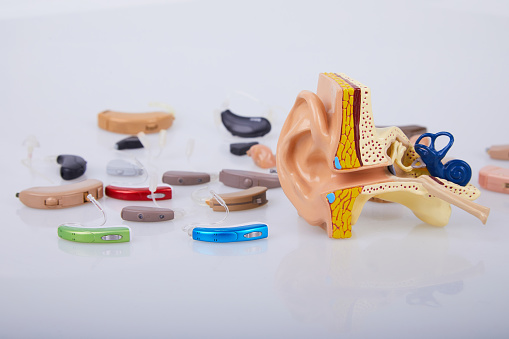“Sounds distort and blend together, sound direction is lost, and every sound seems magnified. The tinnitus is sudden and loud, with whooshing, popping, and other sounds.” (experience of one patient, as described to the Hearing Loss Foundation)
About 66,000 people are diagnosed with this sudden loss of hearing each year in the United States, according to a Harvard publication. Because this condition may be underdiagnosed, real numbers may be higher. Note that another name for it is sudden sensorineural hearing loss (SSHL). Others refer to it as sudden deafness.
With sudden hearing loss, a person suddenly experiences a loss of hearing, usually in one ear, with no obvious cause — although the person may first hear a popping sound. Although this change in a person’s ability to hear may not be perceived as a big problem when it happens, if this condition not treated within 10 to 14 days, it could lead to permanent hearing loss.
Although this can happen to someone of any age, it happens most often to people in their 50s and 60s. After the initial experience, hearing then lessens over a period of minutes to hours, “like air leaking from a tire.”
According to the Hearing Health Foundation, when a loss of hearing of 30 or more decibels in three consecutive frequencies occurs, happening within a period of days, this is considered to be sudden hearing loss.
Symptoms of Sudden Hearing Loss
People experience sudden loss of hearing differently. Some may notice it when waking up, while others become more aware of it when using a phone with the impacted ear. You may have trouble with group conversations, perceive voices as muffled, and struggle to hear when background noise is significant. High-pitched sounds may be problematic.
Plus, there may be buzzing or ringing in your ear—tinnitus—and you could experience dizziness and problems with balance.
Potential Causes of Sudden Hearing Loss
Possible causes include:
- Medical conditions, including viral infection, Meniere disease, Lyme disease, a blood vessel disease, or Cogan syndrome
- Neurological conditions, including multiple sclerosis
- Tumors or another abnormal form of tissue growth
- Head injury
- Blood circulation issues
- Prolonged exposure to loud noises
- Snakebite venom
- Ototoxic medications
- Inner ear malformation
Diagnoses
The Hearing Loss Association of America says that anyone experiencing this condition should get advice from their doctor immediately. Some people don’t because they confuse it with allergies or a sinus infection or think that their ear canals contain wax or fluid. Delaying medical assistance can decrease the possibility of effective treatment.
This condition can be diagnosed through a hearing test and about half of the people who experience it could recover some to all of their hearing without treatment (although you shouldn’t count on that happening!). When looking at people who received treatment, about 85% of them recover at least partial hearing.
When talking to your doctor or specialist, share what medications you’re taking, whether prescription or over-the-counter and ask whether other medical conditions you have are reasons why this type of hearing loss occurs.
During the hearing test, you may be asked to cover up one ear and then listen to different volumes of sound with your uncovered ear. Your doctor may measure vibrations with a tuning fork and otherwise conduct a physical exam. Audiometry tests, which are conducted while you’re wearing earphones, may provide a more precise diagnosis. If an ear abnormality is suspected, your doctor may order an MRI scan.
Treatment
As noted, the earlier someone is diagnosed, the better the chance for a full recovery. Doctors may prescribe steroids to reduce inflammation and/or antibiotics if an infection is involved. Because of the reasons why this hearing loss occurs, treatments can also differ. For people with significant enough permanent hearing loss, a doctor may recommend a surgically inserted cochlear implant to amplify sounds.











